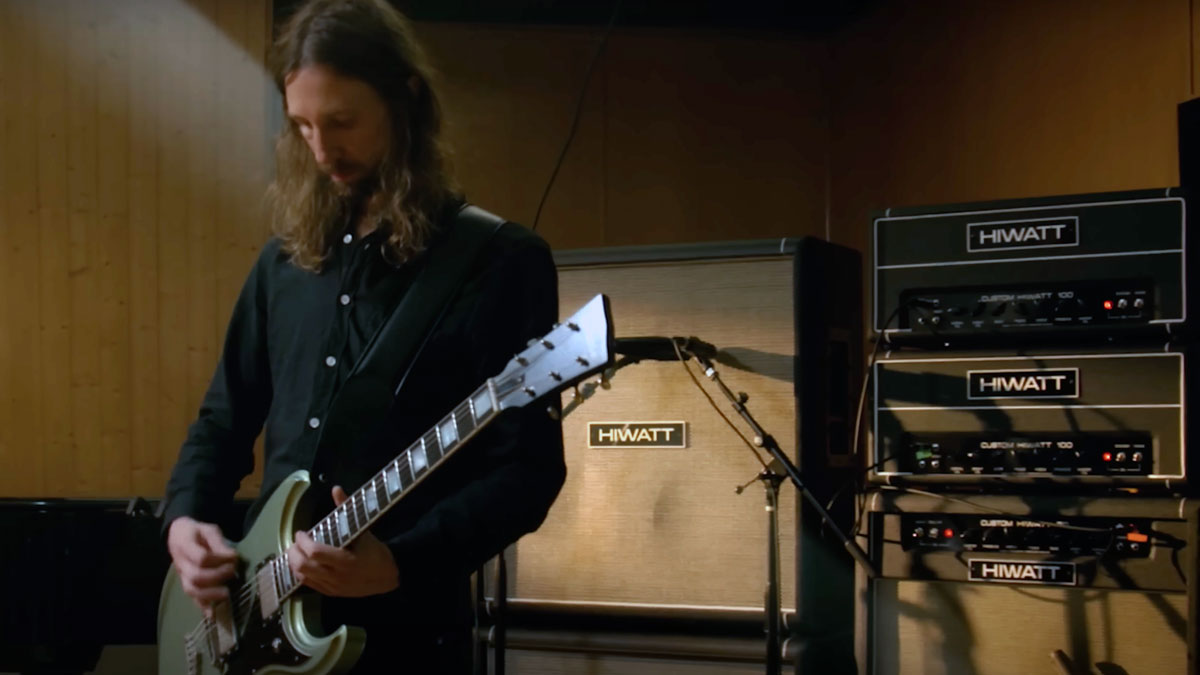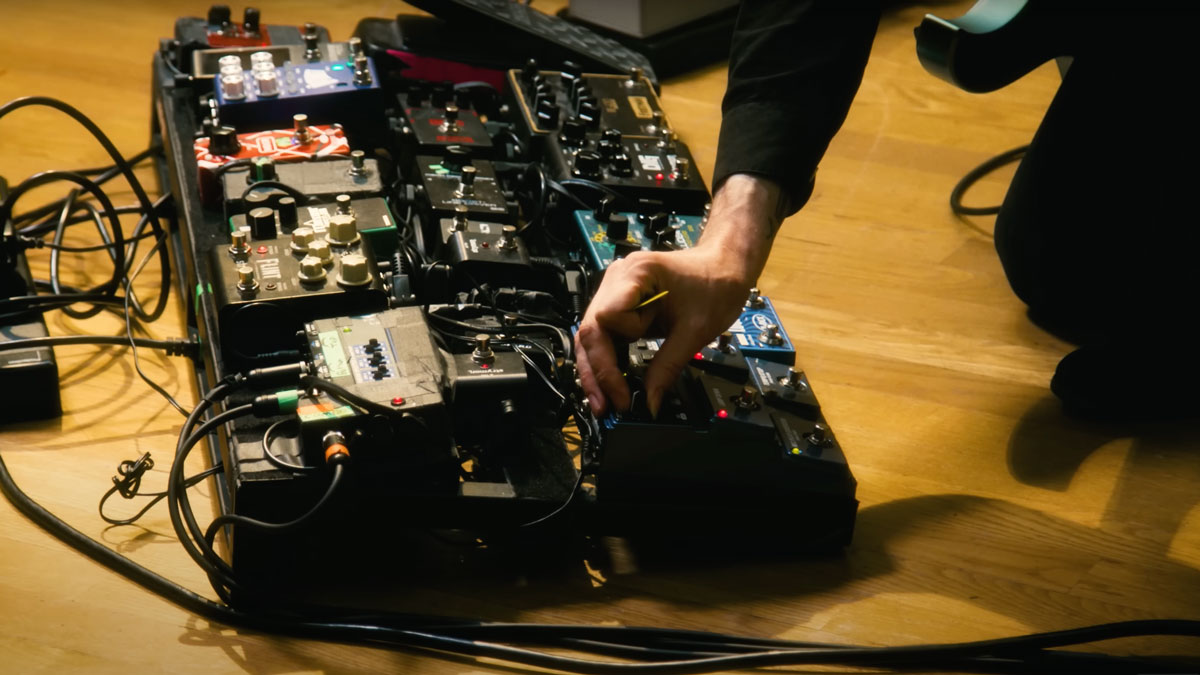The heaviest guitar sound of 2023? This studio-shaking Russian Circles live session is a must-watch for distortion fans
Mike Sullivan’s punishing tones and wall of Hiwatt amps literally shook the Audiotree studio in this rare up-close look at the post-metal masters in action

All the latest guitar news, interviews, lessons, reviews, deals and more, direct to your inbox!
You are now subscribed
Your newsletter sign-up was successful
Last year, Russian Circles unleashed Gnosis, their heaviest album yet. But even by those standards, Audiotree’s Chicago studio had no idea what was in store when the trio dropped by for a three-song live session.
Interspersed with interview segments, the 25-minute video offers a rare intimate look at Mike Sullivan, Brian Cook and Dave Turncrantz’s apocalyptic post-metal onslaughts, delivered across three Gnosis tracks: Betrayal, Conduit and Gnosis itself.
The musicianship is jaw-dropping, but Sullivan’s tone even more so: a spiritually aggressive tone that maintains clarity without ever losing its doom-metal edge.
It’s a truly astonishing force of nature, and accordingly, a tone that can only be produced at extremely loud volumes. “During soundcheck, the amplification literally shook the studio,” Audiotree reveals in the video’s description. “It’s difficult to translate how loud this band actually is without standing directly in the room.”
The amps responsible are a trio of Hiwatts – two 100-watt heads and a 50-watt combo – run through two 4x12s and a 2x12 cab. The multi-amp rig contributes to the stereo spread of Sullivan’s impenetrable wall of sound, while the high wattage allows for maximum headroom when looping, preventing layers from turning to mush.
Yet despite all that volume, Sullivan relies on distortion pedals to gain up his Dunable Gnarwhal, which attests to just how good we’ve got stompboxes these days.
The Friedman BE-OD Deluxe is doing most of the heavy lifting here, with a bit of tightening up via the Maxon Apex808 and, if we’re not mistaken, Jackson Audio’s The Optimist. Bet Cory Wong didn’t expect to hear his signature pedal used for post-doom metal.
All the latest guitar news, interviews, lessons, reviews, deals and more, direct to your inbox!

Sullivan’s thoughts on tone are philosophical and collaborative – and perhaps that’s why his sounds lock in so well with Brian Cook’s ferocious bass foundation.
“Tone is like color: there's no bad color,” Sullivan told Guitar World last year. “There's no bad tone; it's just how you stack these tones together. The worst tone ever might augment a woolier, thicker tone. A conventionally 'good' tone, that is. They might sit totally compatibly in the mix.”
No arguments here – although we’re not sure we’ve ever heard a bad tone from Sullivan, especially when he’s shaking studios and rumbling ribcages.

Mike has been Editor-in-Chief of GuitarWorld.com since 2019, and an offset fiend and recovering pedal addict for far longer. He has a master's degree in journalism from Cardiff University, and 15 years' experience writing and editing for guitar publications including MusicRadar, Total Guitar and Guitarist, as well as 20 years of recording and live experience in original and function bands. During his career, he has interviewed the likes of John Frusciante, Chris Cornell, Tom Morello, Matt Bellamy, Kirk Hammett, Jerry Cantrell, Joe Satriani, Tom DeLonge, Radiohead's Ed O'Brien, Polyphia, Tosin Abasi, Yvette Young and many more. His writing also appears in the The Cambridge Companion to the Electric Guitar. In his free time, you'll find him making progressive instrumental rock as Maebe.

